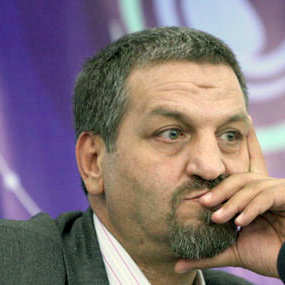Foreign Affairs Ministry an Independent Apparatus

IRD: Two points have to be considered about the recent developments in the Middle East. First, what were the reactions of different countries to the developments in the Muslim world, and second, our reaction to these developments
MK: About the reaction of other countries, we have to bear in mind that dictator rulers are not pleased with these developments and seek to suppress popular demands. Naturally, the recent uprisings in the Arab world leading to changes in those countries have set off alarms for their rulers. These countries think they can solve their problems or distract the public from the difficulties within the country by accusing Iran of interference in their internal affairs. The fact is that six different tribes rule over the six members of the PGCC; each of which is after the interest of its own tribe and not the people. That is why Saudi Arabia deploys its troops to Bahrain, and Al-Saud joined by Al-Nahyan and Al-Sabah come to the rescue of Al- Khalifa.
It is normal that they take such a position and accuse us of interfering in their affairs while continuing the suppression of their people. Nevertheless, an official involvement, as we saw in the case of Saudi Arabia and the UAE with the excuse of being a member of the PGCC, is not legally justifiable, and these countries will definitely regret their act in the future.
Kuwait's experience proved that these measures are not successful. Just like the unpleasant future which awaited Saddam after he attacked Kuwait; these countries will also regret what they did. The kings of these Arab countries have to be advised to cooperate with their people if they want to save their kingdoms and crowns, and if their people do not want their monarchies, they should not resist. The interference of foreign countries in the region will also trigger unrest in these countries. The fact that the attack in Bahrain took place right after US Secretary of Defense Gate's visit to the region is very important. If the US hadn't permitted it, Saudi Arabia would have never dared to do such a thing.
The second point is that the function of our diplomatic system has been very passive. I also pointed out in the closed-door parliamentary sessions that we currently have two perspectives in our foreign policy in regards to the Middle East. One view is that of the leadership which was developed and approved in the National Security Council and was corresponded in the form of strategic policies. This view holds that the developments are results of awakenings in Islamic countries and are to the benefit of our country, and we should welcome them. According to this view, revolutions in the Arab world are results of the Islamic revolution in Iran, the reflection of Iran’s resistance, and we will witness far more changes like this in the future.
The other view is that of the president, Mahmoud Ahmadinejad, who believes that these developments are scenarios planned by the US in order to secure Israel in the region. Therefore, our foreign policy apparatus has consequently become very passive in regards to the recent developments in the region, in accordance with this view. It is according to this view that the ambassador of Bahrain is asked to return to Tehran as if nothing has happened. This view is also seen when in a press conference we announce that we will negotiate with the revolutionaries; this is while the revolutionaries are after changing the infrastructures of the government and we invite them to tolerance and negotiation.
It is obvious that we are passive in the cases of Libya and Yemen. And this passivity stems from policies formulated by the second perspective. This is while in the National Security Council ratifications there’s no debate on this way of approaching these issues. However, we must obtain a clear position according to these ratifications. And this position must be taken in accordance with the latest information available and our strategic policy. It is totally acceptable for us to have a covert policy, but currently our overt policy is passive, which seems to be due to the priority of the second view.
Anyhow, our foreign policy apparatus must reveal its policies toward this case, and clearly state whether it is following the ratifications of the National Security Council, or the second view on the issue.
I believe that our interest lies with democratic, popular and anti-Zionist regimes rather than regimes that are distanced from their people and the demands of the Muslim world, and only use their people to maintain their regimes.
Overall, I have to say that the statement and position of the PGCC is illegal, and their attacks on Bahrain should be denounced. We must act against this provocation so that they understand that they were wrong. On the other hand, our reaction must have a positive and innovative side to it as well. Any passivity in this issue is not forgivable, because we lose our opportunities through this passivity.
As I also mentioned in the closed-door parliamentary session, some ask why our foreign policy apparatus is not active. I do not think that it is not active. Actually, it is quite active in events like inviting the Jordanian king, or the New Year celebrations, or in our relations with Latin American countries.
Unfortunately, no creative actions or initiatives are taken by Iran toward the current developments in the Middle East and Arab countries. This kind of perspective has caused a poor performance by the foreign ministry; hopefully this problem will be resolved soon.

